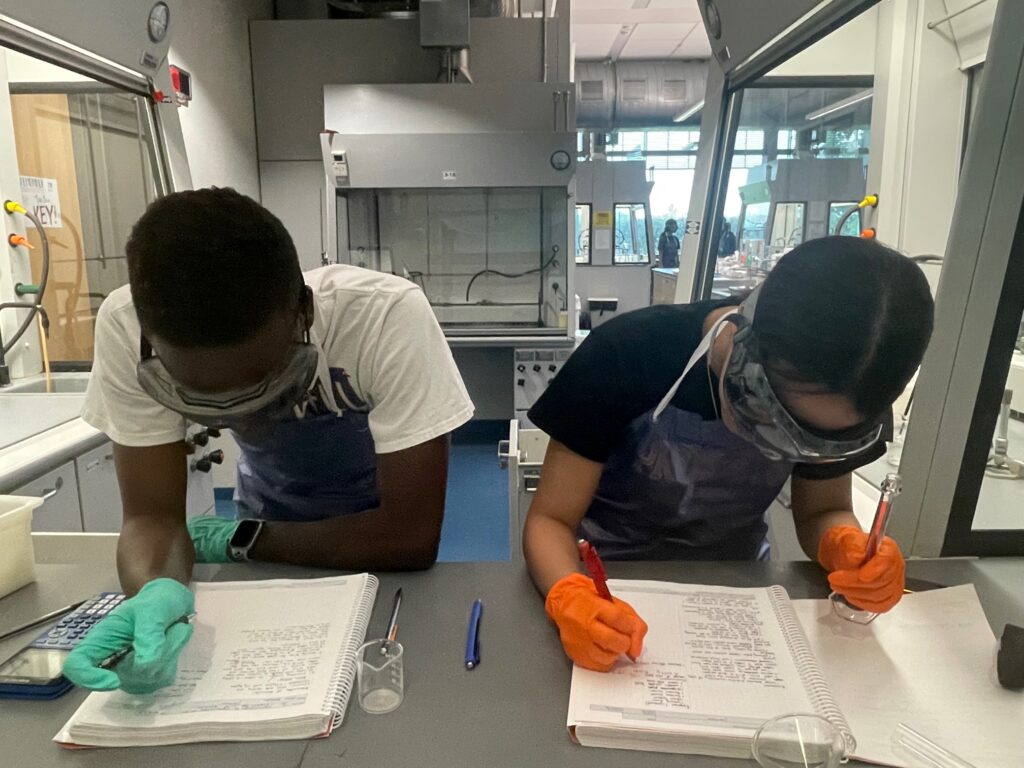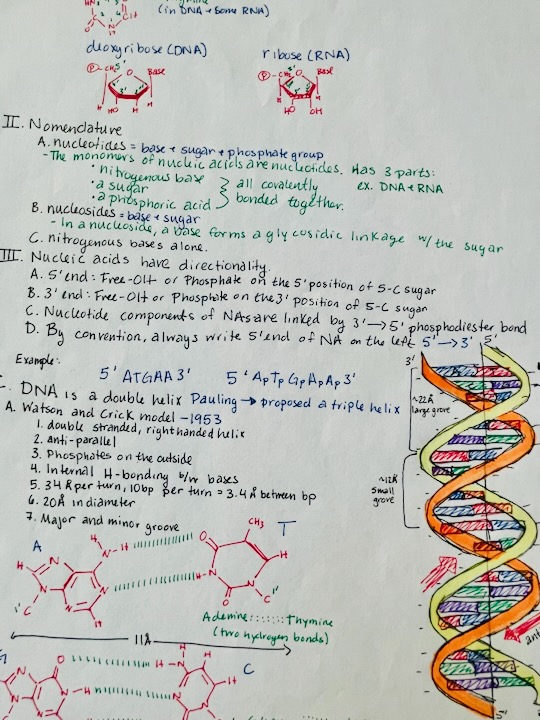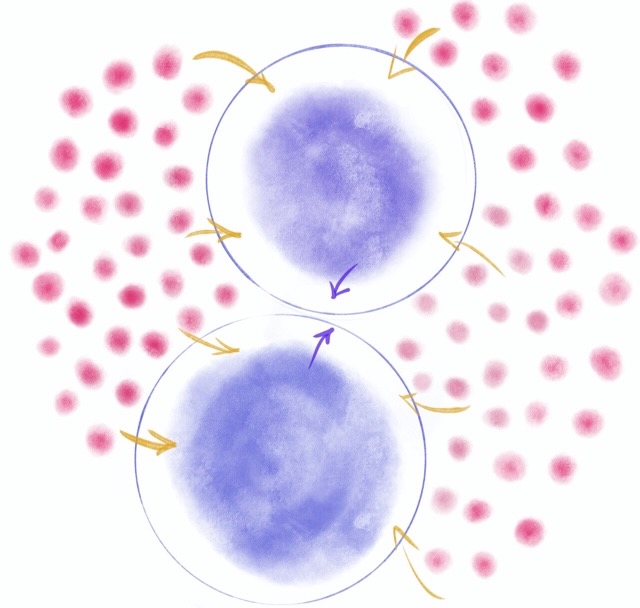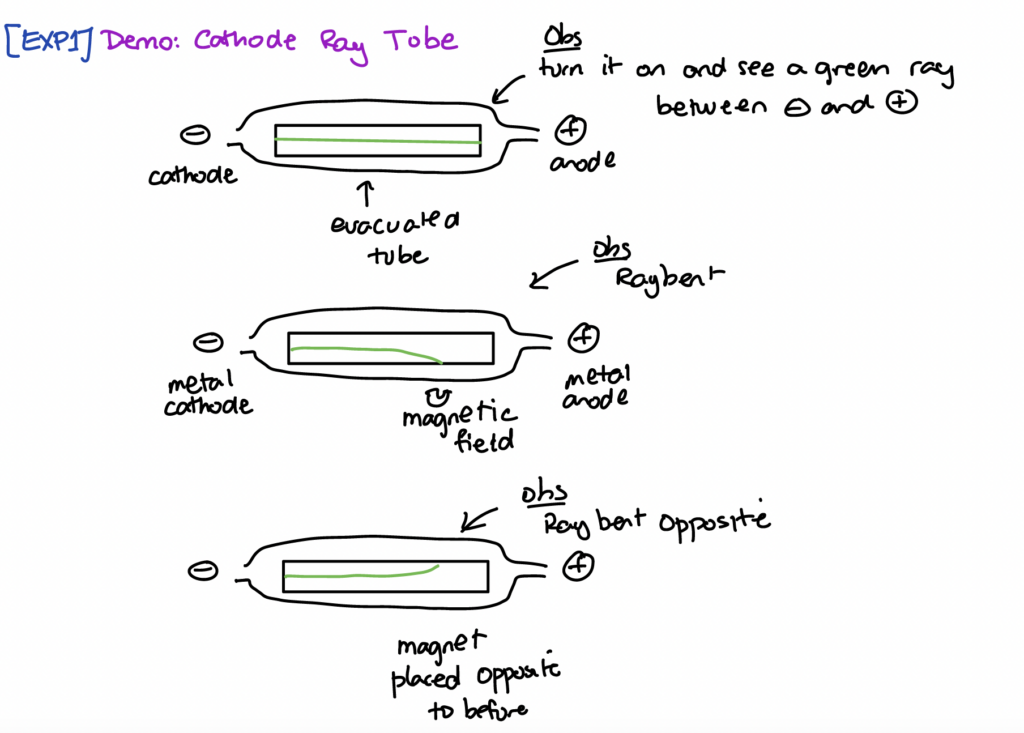Take Great Notes! Get Good Grades!

On the first day of Chem 201 class this year, Professor of Chemistry Michael Hecht puts a slide of the Grand Canyon up on the jumbo-sized screen at McCosh 50. It is a great photo. It inspires at least one of the desired effects, evident as gasps of appreciation ripple through the hundreds of students.
But there is another reason Hecht includes the photo as part of his inaugural class each year: he thinks it’s a great metaphor.
“The slides are not the same as the notes,” says Hecht on opening day. “You can see a photo of the Grand Canyon and be amazed at it, but you wouldn’t know anything about how it forms. You need the story. You need the notes. The picture reminds us, but by itself it won’t tell you the whole story.
“Metaphorically, this course is a little like that photo. There’s a lot going on. You have to take good notes to understand it. You have to delve into it. It’s like learning a new language.”
Sandra Knowles, director of the organic chemistry teaching laboratories, has her own imperatives about note taking in the lab. “It’s all about preparation,” Knowles says. “The pre-lab work is completed in advance and documented in a student’s lab notebook. These are personal notes regarding the experiment and the execution of the protocol, and any adjustments made to the experimental protocol. The notes taken during the lab help students piece together the resulting data from their experiments.
“The combination of pre-lab work and observations during the lab ensures that they, or anyone else, could replicate their experiment and its results from the lab notebook. All of this is crucial for their training as aspiring scientists and future researchers.”
But what constitutes good note taking, and how does a new student distinguish good practices from bad? We asked a few grad students for time-tested advice on what has worked for them. Here are their responses.

A page of notes that Ana Mostafavi, lecturer in chemistry, took during her intro to biochemistry course during her undergraduate years.
What is your best advice on taking good notes?
BENITO BUKSH: (MacMillan Lab): For lab notes: one, write a protocol in your lab notebook; two, execute the experiment; three, compile the data into the lab notebook; four, put the data into actual power point slides. I find this last practice to be really important especially doing biology research, as it helps me to reflect on the implications of the result and where the experiment fits into the bigger picture.
JANE NELSON: (Weichman Lab): Make as many connections as you can within your notes; these can be between concepts in the course material itself or with anything else you’re reminded of. The more you can interact with new ideas by rephrasing, comparing, and questioning them, the better you’ll understand and remember them. It’s great to do this when first seeing the material, but also important to do this as you review. Throughout undergrad, I heavily annotated my notes and synthesized them into study guides for exams.
JESSICA JIN: (Jacobs Group): The point of taking notes is to get the important ideas up here (I’m pointing to my brain), not down here (I’m pointing to a notebook). So when I sit in a lecture, I focus on “seeing” the mental picture that I’m forming more than what my pen is writing. As the professor talks, I listen attentively to continuously paint this mental picture. When I hear something I’m puzzled by, it’s like a spot in a part of my picture that’s a little fuzzy. I jot down a quick note about it so I can do more reading about it later to make that spot crisp and clear.
Of course, a mental sketch can’t capture every detail. But I think of it like a framework of a building. If you have the framework, then adding the walls, windows, and roof—the equations and nitty-gritty details—becomes a lot easier. When you’re going over your notes later, you’ll find it much easier to add those details to your mental sketch.
NICK FALCONE: (Sorensen Lab): Staying organized is the most important piece of note taking, in my opinion. Your notes will only be effective for you later if you can easily find the things you need and they’re organized in a way that makes sense to you. As I’m taking notes throughout a lecture, I always want to highlight things that I want to read more about later. If something isn’t clear or even if I’m just interested in learning more, I make that clear in the notes. Concepts in chemistry build upon themselves and it’s always important to have a handle on the fundamentals to avoid feeling overwhelmed.

Jessica Jin recently drew this illustration of the “depletion effect" on her iPad.
How important is note taking?
BUKSH: In research, taking good notes and making clear slides allows you to see individual experiments in the context of the whole project and make new conclusions.
NELSON: Taking notes intentionally always pays off in the long run. Not only will you understand the material better, but if you keep things organized you can refer back to your own notes rather than going to textbooks and online resources when you’re reviewing for major projects.
JIN: Good notes are crucial when you’re working on a capstone or thesis. While having a mental picture is important to see the “big ideas,” good notes give you the “what”—the formulas, the quotes, the data. You need those specifics to back up your arguments, cite evidence, and delve into the nitty-gritty. The mental picture is a roadmap; your notes are the turn-by-turn directions that help you get there.
FALCONE: Your lab notes should read a lot like a very specific cookbook. I like to narrate mine like I’m telling a story. If someone picks up my notebook six years from now and needs to repeat an experiment that I’ve run, they should be able to do it without any questions or having to dig through the literature for similar examples. Reproducibility is one of the most important aspects of experimental chemistry. Everyone should keep that in mind when they’re taking notes.
How did your notes serve you over the years?
BUKSH: As a first-year graduate student, I used my notebook to write down anything anyone mentioned in a meeting that I didn’t know so I could look it up later. It’s fun to look back at my old notes and see the things I didn’t know just a few years ago.
NELSON: The best notes I have that I still refer to are the study guides I put together for midterms and finals in undergrad. I would review lecture notes, problem sets, and textbooks to create complete and concise descriptions of each exam topic in my own words.
JIN: One strategy that has served me well is using LaTeX [a document preparation system] for note taking and typing up summaries, particularly for courses that involve a lot of math. When you’re dealing with complex equations or specific notations, you get it crystal clear in LaTeX. And when you’re deep in a capstone project and you inevitably find yourself asking, “What was that equation again?” it’s super easy to find it in a LaTeX document, along with any accompanying explanations you typed. (Tip: making custom commands is a time-saver when you’re typing up equations.)

Some information about cathode ray tubes from the notebook of Sonja Francis, director of the general chemistry teaching labs and senior lecturer in chemistry.
Did your process change over time?
BUKSH: Note taking as a graduate student or researcher is quite different as it’s no longer about writing down what might be on the test; it’s instead focused on what information might be useful for academic proposals or starting a new project.
NELSON: For courses and in seminars, I still take my notes by hand in a notebook. I find that seeing related topics in order, in my own handwriting, helps me draw connections between the things I learn. More and more, I find myself writing questions and thoughts related to my own research in the margins. Even if I look back and the ideas were incomplete or short-sighted, I have thought about my research from a different angle and gained a better understanding of the presented topic.
I do take a lot more notes by typing now, particularly when reading papers. I find that keeping electronic lab notes filled with links, images, and spectra helps me synthesize my thoughts. I try to keep my goal of maximizing connections in mind as I work.
JIN: Absolutely. In undergrad, I had equation FOMO. I had to write down every line of math from the board. I could regurgitate material for exams, but I’d quickly forget the subject after the semester was over. More recently in grad school, I’ve shifted towards the strategy I described in #1: to concentrate on building a solid mental sketch, informed by the key equations and concepts. It’s fun, intuitive, and pretty powerful. My notes (either on my iPad or a blank page) look like this: simple drawings and sketches, questions (???), and the 3 “big ideas” I want to take away from the lecture.
FALCONE: My note taking has definitely changed since college. My organizational system is much better now than it used to be, and I feel like I’ve gotten a lot better at recognizing what’s important to write down. As an undergraduate I thought I had to write down anything and everything that was discussed in lecture, which made it difficult to keep track of what was truly important. You can’t possibly write everything down and stay engaged with a lecture at the same time, so developing a good shorthand system has really been beneficial. My best sets of notes are not the ones that have the most content, but the ones that have pointed out the major takeaways and identified areas I wanted to focus on during independent study time.
